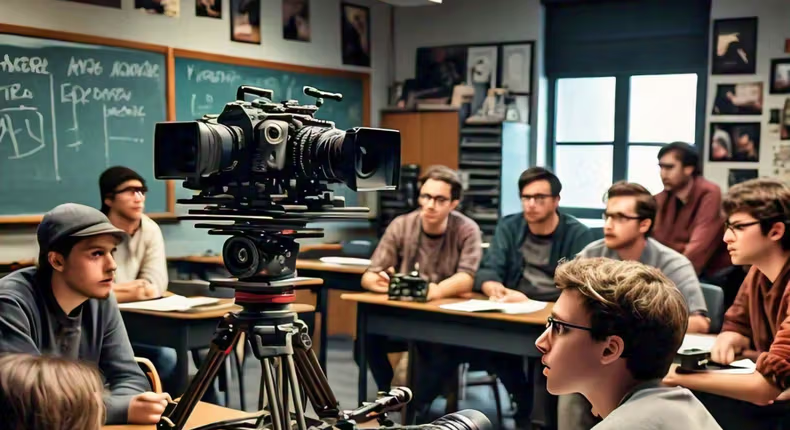The debate over the necessity of film school continues within the film industry.
Film school provides a foundational experience that can significantly shape a filmmaker’s career. It offers essential technical skills and the opportunity to build a network of industry professionals.
In today’s evolving media landscape, the path to a successful film career has diversified. From YouTube tutorials and master classes to hands-on film production and self-taught filmmaking, the question arises whether a formal film education is still a valuable investment.
While many successful filmmakers have never attended film school, numerous notable Nollywood actors, producers, and directors have gained significant benefits from it. Notable alumni include Genevieve Nnaji, who earned a degree in Creative Arts from the University of Lagos; Stephanie Okereke, a graduate of the New York Film Academy; Kunle Afolayan, who attended the New York Film Academy’s Lagos branch; and Rita Dominic, who studied Theater Arts at the University of Port Harcourt.
Here are several reasons why attending film school could be essential for launching a successful filmmaking career:
THE VALUE OF STRUCTURED LEARNING
Film schools offer a structured learning environment that self-directed study often lacks. Their comprehensive curriculum covers all aspects of filmmaking, providing a well-rounded education. This structure helps students develop a thorough understanding of the craft and equips them to face various industry challenges. Courses in film history and theory provide context and inspiration, while hands-on workshops deliver practical experience.
ACCESS TO PROFESSIONAL EQUIPMENT AND TECHNOLOGY
Film schools typically provide access to high-quality equipment and technology that can be costly for individual filmmakers. Students can gain practical experience with industry-standard tools, such as advanced cameras, lighting setups, and editing software. This experience with high-end equipment is crucial for transitioning from academic projects to professional work.
NETWORKING AND INDUSTRY CONNECTIONS
Film school is an invaluable platform for building industry connections. Opportunities to interact with fellow students, faculty members, and guest speakers can lead to collaborative projects, internships, and job offers. Film schools often have strong connections with industry professionals and organizations, which can facilitate introductions and open doors that might otherwise remain closed.
MENTORSHIP AND CONSTRUCTIVE FEEDBACK
Experienced faculty and visiting professionals offer guidance and constructive feedback on students’ work. This mentorship helps students refine their skills, avoid common pitfalls, and navigate the complexities of the film industry. It is particularly beneficial for developing a filmmaker’s unique voice and style.
CREDIBILITY AND INDUSTRY RECOGNITION
A degree from a respected film school can enhance a filmmaker’s credibility and make them stand out in a competitive job market. While talent and creativity are crucial, formal education adds a layer of legitimacy to a filmmaker’s resume. Graduates of prestigious film schools are often highly regarded in the industry and sought after by employers and collaborators.
Ultimately, the decision to attend film school depends on individual goals and circumstances. For those seeking a comprehensive and immersive educational experience, film school can be a powerful launchpad for a successful filmmaking career. By investing in formal education, aspiring filmmakers can gain the skills, connections, and credibility needed to make a significant impact in the world of cinema.

